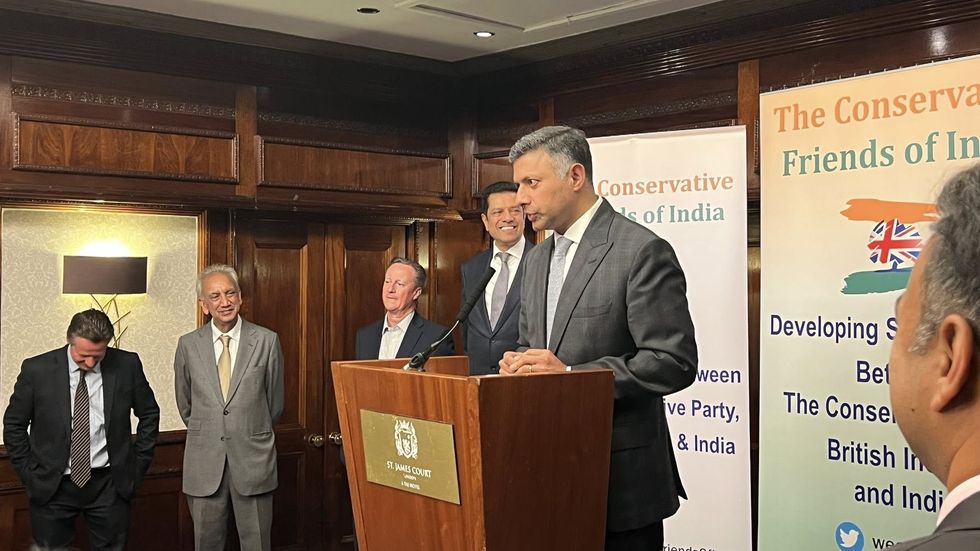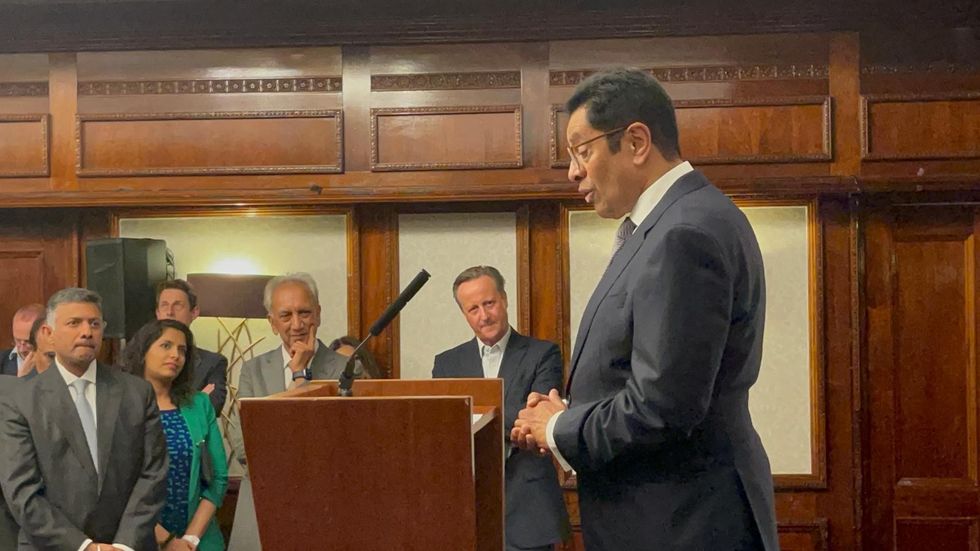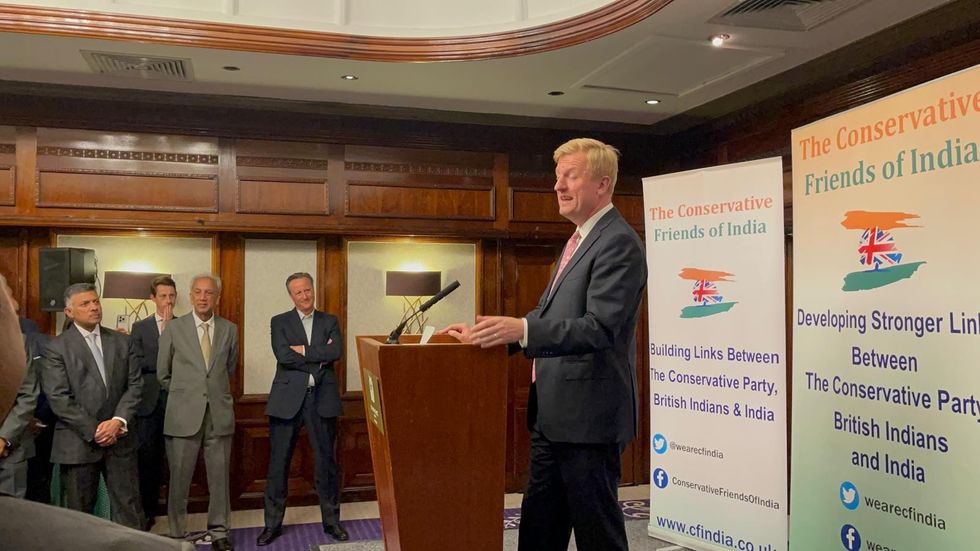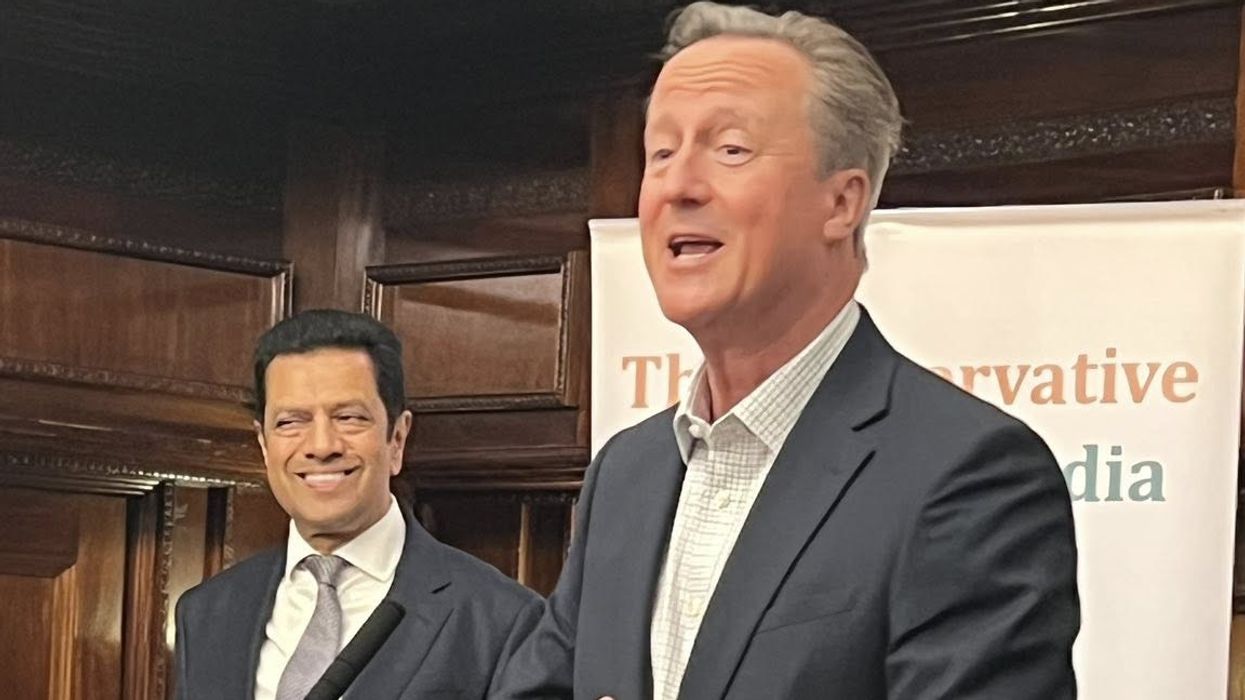Conservative Friends of India (CFoI) hosted its 2025 Summer Reception at St. James’ Court, A Taj Hotel, in an evening that celebrated enduring ties and a shared vision for the future. The event marked a significant moment for the organisation, with newly appointed co-chairs Koolesh Shah and The Rt Hon Sir Oliver Dowden CBE MP welcoming an esteemed gathering of political and community leaders.
The evening’s Special Guest of Honour was The Rt Hon Lord David Cameron, former Prime Minister of the United Kingdom, who delivered a stirring and reflective keynote address. Also present was The Rt Hon Lord Dolar Popat, the esteemed Founder of CFoI, whose longstanding commitment to strengthening Indo-British relations was warmly recognised throughout the event.

A legacy of vision and values
In his remarks, Lord Cameron emphasised the natural alignment between the Conservative Party and the British Indian community around core values such as enterprise, hard work, family, and a strong sense of community.
Reflecting on his enduring personal and political ties with India, Lord Cameron recalled that India was the first country outside Europe he visited both as Leader of the Opposition in 2005 and as Prime Minister in 2010.
He shared a defining memory of Prime Minister Narendra Modi’s landmark address at Wembley Stadium, stating, “That night, I said the Conservative Party would be the one to give Britain its first Indian-origin Prime Minister. Little did I know that young Rishi Sunak was in the audience with his parents. Seven years later, that vision became reality.”
He added with both celebration and introspection, “We’re not a perfect country—discrimination and inequality still exist—but Britain remains a rare example of a true meritocracy where someone can arrive here in one generation and reach the highest office in the land in the next.”

Honouring leadership and community contribution
Rt. Hon. Sir Oliver Dowden KCB CBE MP, Former Deputy Prime Minister and newly appointed Co-Chairman of Conservative Friends of India, praised the British Indian community’s significant contributions across the UK’s economic, political, and social landscape.
“The British Indian community is at the heart of our national life—whether in local campaigns or national leadership, including our own Prime Minister Rishi Sunak,” he said. Dowden also acknowledged the foundational leadership of Lord Popat and Lord Cameron, who helped launch CFoI in 2012, and paid tribute to outgoing co-chairs Rina and Amit for their impactful service.
Koolesh Shah, the newly appointed Co-Chairman, reflected on his British Indian heritage and pledged to continue fostering strong links between the UK and India. “Ours is a story of success, integration, and service. We must now focus on nurturing the next generation of Conservative British Indian leaders,” he said. Shah also expressed gratitude to High Commissioner Vikram Doraiswami for his role in facilitating deeper political and cultural ties.

Strengthening UK-India relations
In his address, High Commissioner of India to the UK Vikram Doraiswami highlighted the robust nature of UK-India relations, grounded in shared democratic values and vibrant people-to-people connections. “This partnership must go beyond politics—built on trade, technology, education, and the drive of our people,” he stated.
An evening of unity and vision
The reception was expertly compered by Cllr Ameet Jogia MBE and Cllr Reena Ranger OBE, both former CFoI Chairs known for their instrumental roles in expanding the organisation’s grassroots outreach and national influence.
The audience comprised CFoI leaders, dedicated members, business figures, community representatives, and longstanding supporters—all united in their commitment to a stronger, more inclusive Conservative movement and a flourishing UK–India relationship.




